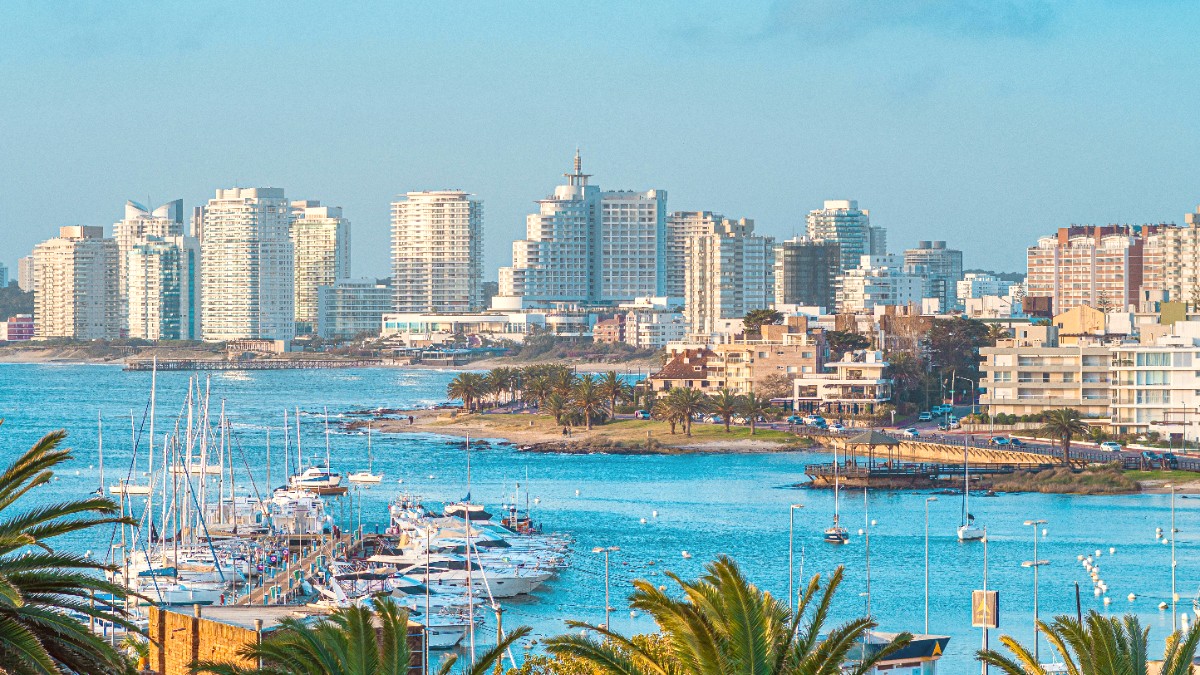
Eastern Uruguay, Uruguay
Respect all regulations in zones like Laguna del Sauce and Isla de Lobos. Stay on marked trails and avoid disturbing wildlife to support conservation initiatives.
Uruguay's recycling efforts are growing. Reduce personal waste by bringing a Reusable water bottle and using Reusable shopping bags.
Look for Eco-friendly accommodation that uses energy-efficient lighting and water-saving fixtures. Choose responsible tour operators, like G Adventures, prioritizing ethical tourism.
Interacting respectfully with the local culture enriches your experience.
Support local artisans, cultural institutions, and historical sites. Your tourism choices can fund efforts to preserve Uruguayan heritage and traditions.
Learning a few basic Spanish phrases, like "Hola" and "Gracias," goes a long way. Be polite, patient, and open to local customs. Embrace the relaxed pace of life in Uruguay.
Always ask for permission before photographing individuals, especially children. Be discreet and respectful. Avoid photography in private homes or during religious ceremonies without explicit consent.
Punta del Este is not a major center for religious tourism, but if visiting churches, dress respectfully (shoulders and knees covered) and keep noise levels low. A respectful appearance is always appreciated.
Consider offsetting your flight emissions through reputable programs like Terrapass. Many airlines also offer this option directly when booking.
Learn more about carbon offsettingEquip yourself with sustainable outdoor gear from companies committed to environmental practices, such as Patagonia. Support brands that align with your values.
Explore sustainable outdoor gearA person holding a reusable water bottle symbolizes a commitment to sustainable travel practices.
Ensure your travel benefits the local community directly.
While formal community-based tourism is less prevalent in Punta del Este, seek opportunities in more rural areas of Uruguay. These initiatives directly support local families and provide authentic cultural exchange.
Visit artisan markets, like the Feria Artesanal in Punta del Este. Purchase directly from local craftspeople to ensure they receive a fair price for their work, supporting local traditions and the economy.
Prioritize local restaurants, cafes, and shops over international chains. This circulates money within the local economy and supports local entrepreneurs. Dine at traditional Parrillas or Chiviterías.
Be aware of tours or activities that might exploit animals (e.g., forced interactions) or local communities. Choose ethical operators that prioritize responsible tourism and the well-being of all involved.
If you wish to donate to local causes, do so through established local charities or non-governmental organizations. This helps aid reach those who need it most in a structured and sustainable way.
Support well-established local organizations. This ensures funds are managed responsibly and reach those in need.
Consider NGOs working on social or environmental issues. They have programs in place for effective aid distribution.
Direct giving to beggars may not lead to sustainable aid. Structured donations are generally more impactful.
A person holding a reusable water bottle embodies responsible and sustainable travel choices.